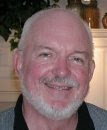A number of years ago a missionary in India was showing a Brahmin a beautiful microscope which he had just received from England. The Brahmin was intensely interested in the wonderful things revealed by the instrument. The missionary took a drop of water, focused it, and asked the Brahmin to examine it. As he did so, to his surprise and horror he beheld numbers of little creatures squirming and disporting themselves in the water. "Does it speak truth?'" he enquired. On being assured that it did so, he exclaimed, "And I destroy life! I break caste, and I a holy man!"
The Brahmin left the missionary compound in an excited state. The microscope had shown him that in every drop of water there is animal life, and each time he drank it he broke his caste. This was, indeed, to him a terrible revelation. What was he to do?' Would he confess to his co-religionists that he had broken caste, and refuse to drink water again? A happy idea struck him, and he decided to carry it out. He would buy the microscope, and get rid of that which had been the occasion of his trouble. Next day he paid the missionary a visit, and inquired if he was willing to sell the microscope. The missionary declined to part with it. Day after day the Brahmin returned, seeking to purchase it. At last the missionary, wearied with his importunity, and knowing that he could easily procure another, consented to sell it.
The price being paid, the Brahmin took it into the compound, the missionary following. To the missionary's .surprise the Brahmin raised it up, and dashing it violently to the ground, stamped upon it. Then the Brahmin confessed he had been wretched and miserable since the day that he saw the animal life in the water, and determined to destroy that which had been the occasion of his unhappiness.
This incident illustrates what is going on amongst us to-day. In the spiritual world the Bible is God's microscope. It reveals the fact that there are only two classes of persons in His sight—saved and unsaved, converted and unconverted. It, shows that high and low, rich and poor, moral and immoral, "religious" and irreligious, need to be "born again" ere they can see the kingdom of God (John 3: 3). It declares that the unregenerate are under condemnation (John 3: 18), with God's wrath abiding on them (John 3: 36), and are hurrying on to the "everlasting burnings" (Isa. 33:14). But the multitudes accept not the revelations of the Divine "microscope," and do their utmost to "break" it. Hence it is common to hear it asserted that the Bible is full of mistakes and contradictions. Such attacks will not, however, injure the "old Book." This Divine "microscope," while showing us man's ruin, reveals God's provision for our deepest need. In Isaiah 53: 6 we read. "All we like sheep have gone astray; we have turned every one to his own way: and the Lord hath laid on Him the iniquity of us all." In spite of our innumerable sins, God loved us with a fond and tender love; he marvelously proved it by giving His only-begotten Son as a sacrifice for sin.
He cannot be mistaken, and it is impossible for Him to lie. What this "microscope" reveals must be true. "Let God be true, but every man a liar" (Rom. 3: 4). Believe His "glad and glorious Gospel," and you will obtain the free and full forgiveness of all your sins,
—From "Faithful Words."
Sunday, February 26, 2012
Subscribe to:
Comments (Atom)


